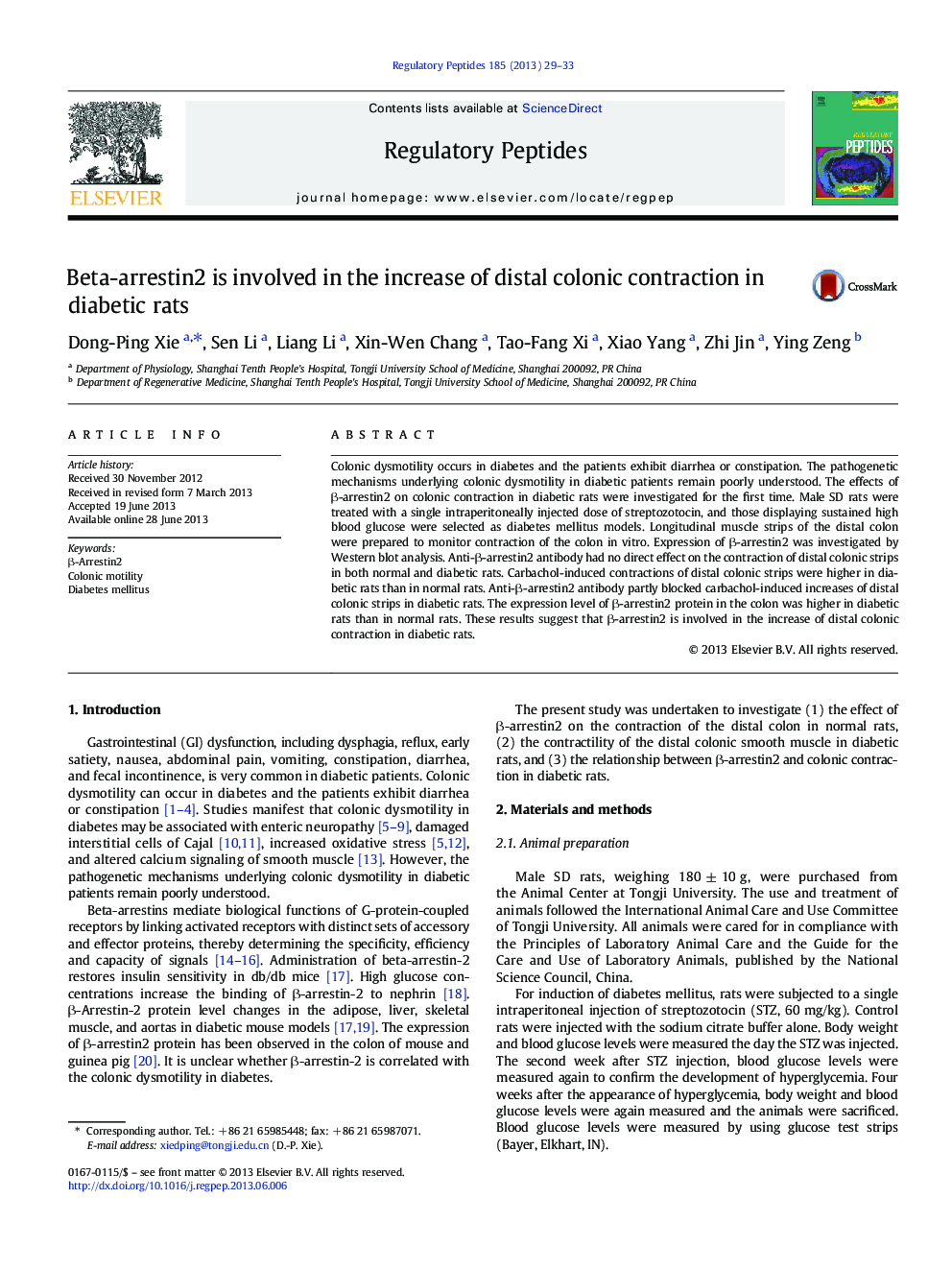| Article ID | Journal | Published Year | Pages | File Type |
|---|---|---|---|---|
| 8361068 | Regulatory Peptides | 2013 | 5 Pages |
Abstract
Colonic dysmotility occurs in diabetes and the patients exhibit diarrhea or constipation. The pathogenetic mechanisms underlying colonic dysmotility in diabetic patients remain poorly understood. The effects of β-arrestin2 on colonic contraction in diabetic rats were investigated for the first time. Male SD rats were treated with a single intraperitoneally injected dose of streptozotocin, and those displaying sustained high blood glucose were selected as diabetes mellitus models. Longitudinal muscle strips of the distal colon were prepared to monitor contraction of the colon in vitro. Expression of β-arrestin2 was investigated by Western blot analysis. Anti-β-arrestin2 antibody had no direct effect on the contraction of distal colonic strips in both normal and diabetic rats. Carbachol-induced contractions of distal colonic strips were higher in diabetic rats than in normal rats. Anti-β-arrestin2 antibody partly blocked carbachol-induced increases of distal colonic strips in diabetic rats. The expression level of β-arrestin2 protein in the colon was higher in diabetic rats than in normal rats. These results suggest that β-arrestin2 is involved in the increase of distal colonic contraction in diabetic rats.
Related Topics
Life Sciences
Biochemistry, Genetics and Molecular Biology
Biochemistry
Authors
Dong-Ping Xie, Sen Li, Liang Li, Xin-Wen Chang, Tao-Fang Xi, Xiao Yang, Zhi Jin, Ying Zeng,
